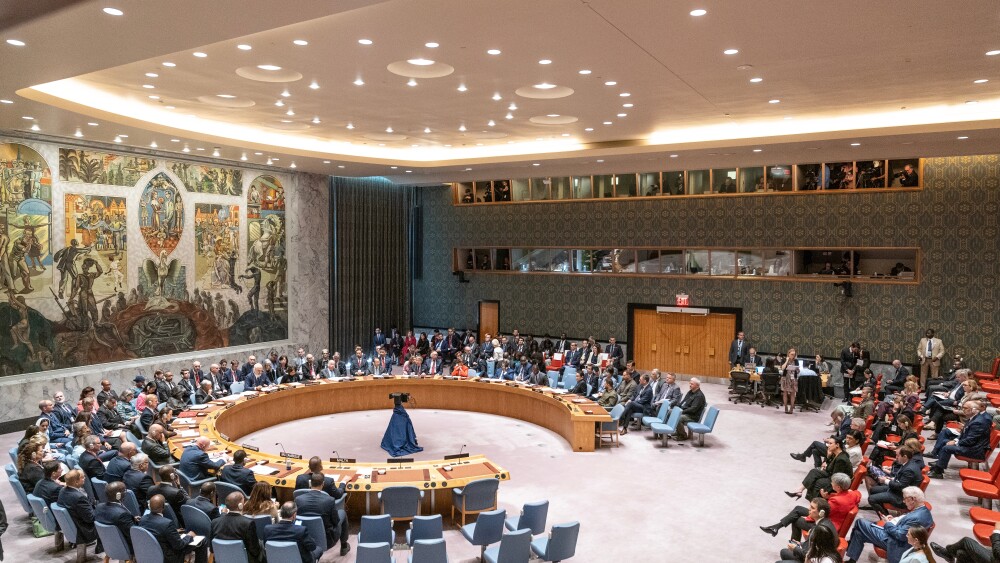When France and the United Kingdom recognized a state of Palestine in September 2025, they claimed to be taking a principled stand—for justice, self-determination, and the long-promised two-state solution. Even as Hamas still held Israeli hostages in the Gaza Strip, they presented recognition as an overdue, courageous political act. Then came United Nations Security Council Resolution 2803, passed on November 17, 2025, to endorse the International Stabilization Force and at the heart of President Donald Trump’s plan for Gaza. With their votes in favor, France and the United Kingdom revealed their original gesture to be hollow.
If Palestine had been sovereign, no external body could take charge of its territory without its consent.
Introduced on the premise that the Palestinians are unable to govern their own territory in the aftermath of the ceasefire with Israel, Resolution 2803 establishes a transitional administration in Gaza. Backed by an International Stabilization Force, it conditions returning Palestinian governmental authority and a possibility of statehood on externally defined benchmarks and reforms. It treats Palestinian governance not as a sovereign right, but as something that they must earn through compliance. This is not how the international community treats states; it is how it treats territories that lack the attributes of statehood.
If Palestine had been sovereign, no external body could take charge of its territory without its consent, and no international force could assume its security functions, and no foreign-led “reform program” could determine when elected or appointed authorities are qualified to govern.
France and the United Kingdom recognized a state one moment and treated it as a non-state the next. That is not principled diplomacy; it is a diplomatic contortion. Palestine has never satisfied the legal criteria of statehood. Resolution 2803 now concedes what France and the United Kingdom previously denied.
The Montevideo Convention on the Rights and Duties of States (1933) requires a state to possess a permanent population, defined territory, functioning government, and capacity to enter into relations with other states. Central to statehood and recognition is effective, independent governmental control. A state need not govern well, but it still must be able to govern. The United Nations Charter also requires states to be “peace-loving” and able and willing to fulfill obligations of U.N. membership, including not threatening or using force “against the territorial integrity or political independence of any state.”
Revealing the cynicism of France and Britain’s actions, Resolution 2803 asserts that the “situation in the Gaza Strip threatens the regional peace and the security of neighboring states,” highlighting the U.N. Charter violations that existed even as those countries committed to recognition. The resolution also mandates demilitarizing Gaza, decommissioning weapons from non-state armed groups, and destroying terror infrastructure and preventing it from being rebuilt, affirming that removing terrorist control is a condition to opening a “pathway to Palestinian self-determination,” further demonstrating that the Palestinians had not met the international law requirements for statehood.
Premature recognition of a Palestinian state was symbolic politics—moral positioning without legal substance.
France and the United Kingdom’s approval of Resolution 2803 concedes that a state of Palestine was not legally worthy of recognition. They went ahead with recognition anyway because it was easy and popular among domestic and international audiences. Their premature recognition of a Palestinian state was symbolic politics—moral positioning without legal substance. Rather than advancing peace, British and French virtue signaling obstructed conflict resolution at a time when Hamas continued to hold hostages.
Resolution 2803 exposes this. It forces Paris and London to abandon their symbolic narrative and confront reality—the Palestinian political apparatus remains divided and incapacitated, it does not exercise effective control over its territory, and it cannot provide basic security. Hamas’s actions since October 7, 2023—and even after the October 2025 ceasefire—underscore this failure.
If Europe wants to support Palestinian self-determination, it must be willing to tell the truth and assess Gaza objectively rather than through the subjective demands of a radicalized domestic constituency. A viable, non-threatening, peace-loving, Palestinian state with political unity, functioning institutions, and stable territorial control will not come with the wave of a magic wand; it will come when outside powers hold Palestinian governance accountable for its actions.







